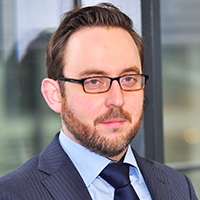Wellcome Trust Ltd (C-459/19) - Application of the reverse charge to entities carrying on non-economic activities
17/03/2021
Wellcome Trust Ltd (WTL) is the VAT-registered trustee of a charity, the Wellcome Trust, which makes grants for medical research.
In October 2018, the First-tier Tribunal (FTT) ruled that WTL did not need to apply the reverse charge to services received from investment managers based outside the EU.
HMRC appealed the decision to the Upper Tribunal (UT), and on 13 June 2019 the UT referred the appeal to the Court of Justice of the European Union (CJEU).
The CJEU has found that where a taxable person carries on a non-economic activity in a business capacity and acquires services for the purposes of that non-economic activity, those services must be regarded as being supplied to that taxable person ‘acting as such’. Therefore, the CJEU has found against the decision in the FTT, meaning that WTL is required to account for the reverse charge on services received from investment managers based outside the EU.
Given both the judgment and recent changes to UK VAT law from 1 January 2021, we recommend that funds established in the UK which are not currently VAT registered consider their position, to assess whether they are required to register for VAT or account for the reverse charge on services received from abroad.
Background
In October 2018, the FTT’s key finding was that WTL, although VAT registered in the UK, was not a taxable person ’acting as such' in accordance with Article 44 of the Principal VAT Directive (PVD). Therefore the services were not treated under the basic business to business (B2B) rule as being supplied where the recipient belonged in the UK (where WTL is established), and the reverse charge should not apply.
This decision was based on the PVD and not UK law. Prior to 31 December 2020, VATA 1994 defined a ’relevant business person’ as including anyone who is registered for UK VAT. Therefore, as WTL was VAT registered because of unrelated activities (e.g. commercial property rental), under UK law the basic rule for B2B services would mean that the place of supply was the UK and the reverse charge would apply.
The specific questions referred to the CJEU were:
1) Is Article 44 of Directive 2006/112 to be interpreted as meaning that when a taxable person carrying on a non-economic activity consisting of the purchase and sale of shares and other securities in the course of the management of the assets of a charitable trust acquires a supply of investment management services from a person outside of the Community exclusively for the purposes of such activity, it is to be regarded as “a taxable person acting as such”?
2) If Question 1 is answered in the negative and Articles 46 to 49 of the [VAT] Directive do not apply, does Article 45 of [that directive] apply to the supply or does neither Article 44 or Article 45 apply to the supply?
The CJEU's judgment
In this case, The CJEU has found that where a taxable person carries on a non-economic activity, is in ‘business’ and acquires services for the purposes of that non-economic activity, those services must be regarded as being supplied to that taxable person ‘acting as such’, i.e. acting as though they were in business.
The decision makes a clear distinction between a taxable person undertaking a non-economic activity in a business context, and undertaking a private activity (e.g. supplies intended for the private use of the taxable person or its staff) - the latter not being treated as supplies to a taxable person ‘acting as such’.
In light of the CJEU decision, taxable persons that receive supplies in relation to non-economic activities fall within the provisions of Article 44 of the PVD. Therefore, VAT should be accounted for under the reverse charge where the recipient of the services belongs. In light of this finding there was no requirement to consider the second question referred.
What happens next?
The case will now return to UK courts to apply the CJEU decision and we expect the UK courts to follow the decision.
Notwithstanding the CJEU’s judgment, from 1 January 2021, the UK legislation was amended by the Taxation (Cross-border Trade) Act 2018 so that s. 7A(4) of Value Added Tax Act 1994 now reads:
“For the purposes of this Act a person is a relevant business person in relation to a supply of services if—
(a) the person carries on a business, and
(b) the services are not received by the person wholly for private purposes, whether or not the services are received in the course of business.”
Therefore, the UK legislation from 1 January 2021 potentially puts all UK entities which carry on non-economic activities in the same position as WTL when they receive taxable services from non-UK suppliers – i.e. they are carrying on a business, and are therefore a ‘relevant business person’, with obligations to account for reverse charge VAT. That includes entities such as funds which carry on investment activities comprising the purchase and sale of securities.
What does this mean for businesses and funds?
UK entities, including funds, which carry on investment activities (or other non-economic activities) should review their position.
As a result of the Wellcome Trust CJEU judgment and the 2021 changes to UK VAT law, we expect that many businesses and funds will have obligations to register and/or account for VAT in situations where they did not previously have those obligations. This is on the basis that UK entities should account for UK VAT on services received from outside the UK under the reverse charge which are attributable to their non-economic activities unless such services are used for a private purpose.
If you would like to discuss this further, please contact one of the key contacts below or your usual Deloitte engagement team.


